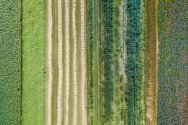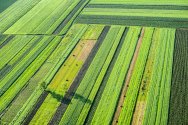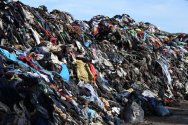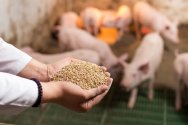
Circular and climate-neutral (KB-34)
Most of the raw materials used in our society are applied in disposable goods. There is a broad consensus that this linear system is no longer sustainable. A transition towards circular usage of water, nutrients and carbon, in combination with a minimal loss of natural resources, is needed. Only then will our climate recover, and will we be able to continue feeding the ever-growing world population.
Towards a circular and climate-positive society
In the research programme ‘Towards a circular and climate-positive society’, Wageningen University & Research strives to develop new production systems for food and non-food products. We believe these systems should not only be circular and climate-neutral but should even have favourable effects on our climate. We conduct research that contributes to circular and climate-positive production systems on land and in water.
We are working on the transition towards a circular a climate-positive society through four interlinked topics:
1. Management of transitions
Within the area Building blocks for governance, we develop instruments that facilitate the transition towards a circular and climate-positive society.
Read more about developing tools for managing and monitoring transitions
2. Primary production systems
The new circular, climate-positive society demands new primary production systems.
Read more about redesigning the production of biological resources
3. Biobased products
The new biobased economy leaves no room for fossil-based products.
Read more about diversifying the use of biomass feedstock
4. Assessment of syngergies and trade-offs
This sizeable project with regard to the assessment of synergies and trade-offs links all the KB-34 ‘Circular and climate neutral’ themes.
Read more about the Assessment of synergies and trade-offs
Impact in 2030
Our aim is for Wageningen University & Research to contribute significantly to a circular and climate-positive society by the year 2030. An environmentally friendly society where contemporary production systems have given way to closed-cycle biobased systems beneficial to humans, animals and the world.
Blog series Circular and Climate Neutral
Frequently asked questions
Find answers to frequently asked questions about the circular bio-economy in the videos below:
How can we extract nutrients from manure and turn them into useful products?
- Unfortunately, your cookie settings do not allow videos to be displayed. - check your settings
How does one start the transition to a circular economy?
- Unfortunately, your cookie settings do not allow videos to be displayed. - check your settings
How does circular agriculture contribute to biodiversity?
- Unfortunately, your cookie settings do not allow videos to be displayed. - check your settings
How does a circular economy lead to less greenhouse gas and climate repair?
- Unfortunately, your cookie settings do not allow videos to be displayed. - check your settings
Why is sustainable use of our soil so important?
- Unfortunately, your cookie settings do not allow videos to be displayed. - check your settings
Other news
Film
The circular household; How do we live inside our houses?
- Unfortunately, your cookie settings do not allow videos to be displayed. - check your settings
The circular household; Our living environment
- Unfortunately, your cookie settings do not allow videos to be displayed. - check your settings
Using manure to grow insects for chicken feed
- Unfortunately, your cookie settings do not allow videos to be displayed. - check your settings










